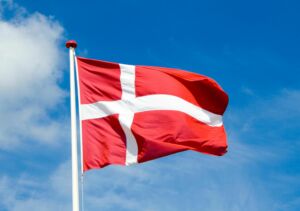Opinion
Kiss and make up
This article is more than 10 years old.

(photo: Jacob Bøtter)
Seventy years ago, Denmark was liberated from the Nazi Occupation. And over the past week, it has been widely commemorated.
It certainly makes one think: just ten years from now, there will hardly be any eyewitnesses left, which make now as good a time as any to pay homage to the victims of the war.
Quiet on the memorial front
On the whole, recognition has been late in coming for the Danes. It was only last year, for the 70th anniversary of the D-Day Landings, that Danish seamen who served under the Allies were invited to the beaches of Normandy.
Meanwhile, veterans of the resistance movement and survivors of the concentration camps have finally been given a cash grant, and a new museum is being built to preserve their memory.
Learning the hard way
Overall, Denmark has tended to celebrate its defeats more than its victories – maybe because these events were blessings in disguise.
We lost the wars in 1669, but Copenhagen held out in the siege and Denmark retained its independence, but lost its Swedish territories and its position as a big Atlantic power.
In 1802 and 1807, we succumbed to the British and lost our fleet and status as a prominent balancing power in the Nordic region, which consequently led to us losing Norway because we could no longer support it. A new world order was then born in Vienna in 1815 in which France was no longer our natural ally.
In 1864 we again overestimated our importance and lost Schleswig-Holstein to Prussia, only to regain the Danish-speaking part in 1920 when Germany had its own attack of megalomania. By that time, we had become a mini-state trying to hide under the radar in international conflicts.
And then in 1940, Denmark was occupied by Nazi Germany, mainly because she needed it to secure its supply of steel from Sweden – our bread and butter, it would have got anyway. We learned from that experience not to stand alone, but in future to integrate, for better or worse.
Time to move on
Now 70 years after the Liberation, when the Occupation is a living memory for just a very few, we should consider calling it a day.
Although, that’s not to say we wont keep the memory of the victims alive. After all, many families have a connection to the past – and also the darker parts of it. The highest body count, was sustained among Danish volunteers fighting in German uniform on the eastern front!
We should get on with the task of being a harmonious nation with tolerance and respect for human rights that is facing the challenges of the future.
The prime minister led the way last week when she kissed the German chancellor. We’ve been to hell and back, so the least we can do is follow Helle’s example.
About










































